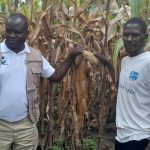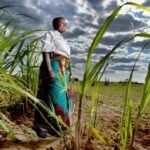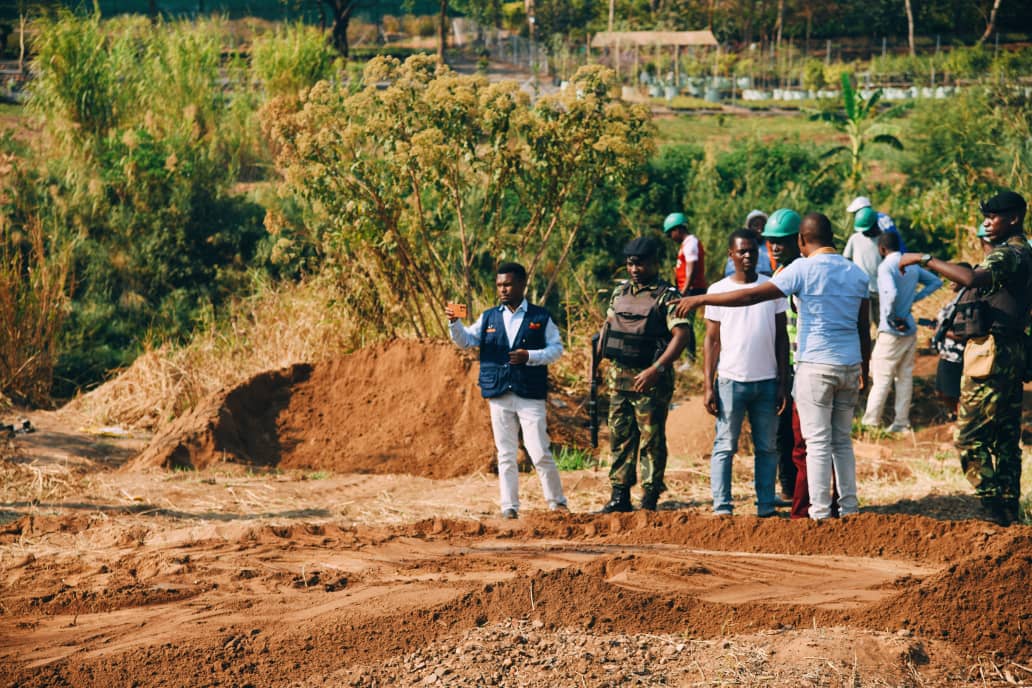Lilongwe – With climate shocks eroding crop yields and post-harvest losses worsening food insecurity, Malawi has officially launched the RE-GAIN Programme—a $10.8 million initiative funded by the Green Climate Fund and spearheaded by the Alliance for a Green Revolution in Africa (AGRA).
The programme—formally known as Reducing Food Loss and Waste through Climate-Smart Post-Harvest Management Solutions (RE-GAIN)—was launched during an inception meeting held at Sunbird Lilongwe Hotel on Tuesday. The event brought together policymakers, development partners, and private sector actors, all united by a shared goal: reversing the country’s worsening food system challenges through smarter post-harvest management.
A Timely Intervention Amid Climate Stress
Minister of Natural Resources and Climate Change, Owen Chomanika, welcomed the initiative, describing it as a timely response to the twin threats of food insecurity and environmental degradation.
“Our productivity is already under pressure from climate change, and poor post-harvest practices only make things worse,” Chomanika said. “When people lose their harvests, they turn to forests to survive. This project gives us hope—not just for food security, but also for reducing environmental destruction.”
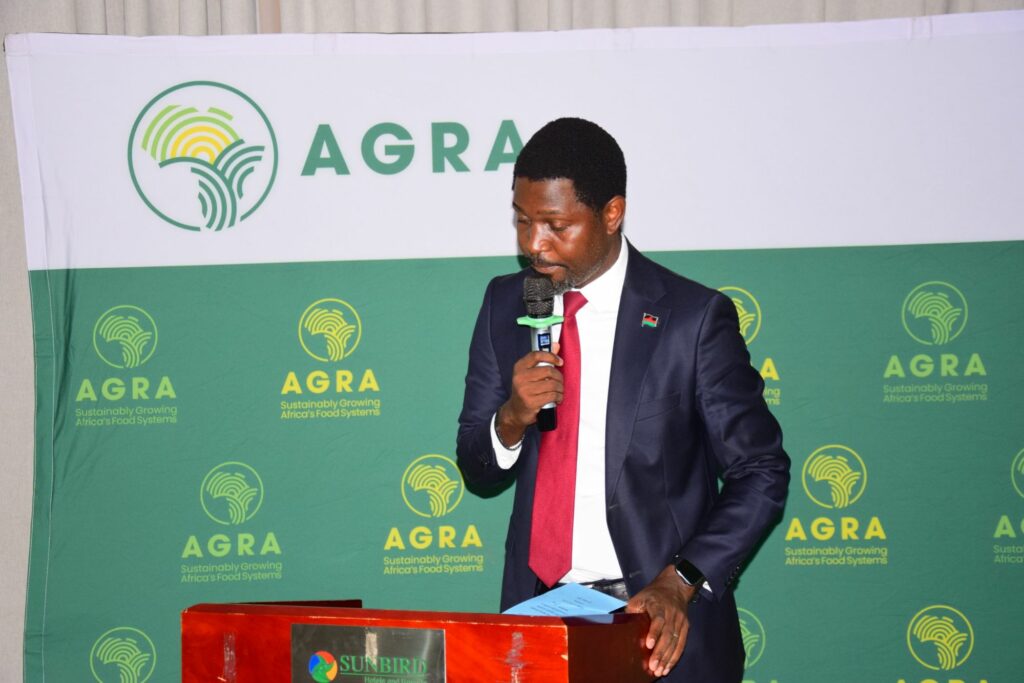
But the Minister cautioned against complacency, warning that many high-budget interventions in the past have failed to deliver on their promises.
“We’ve seen multi-million-kwacha projects come and go, while poverty deepens. The launch is just the beginning. What matters is implementation, and we expect visible, real-life impact at the grassroots level,” he stressed.
AGRA Malawi Country Director, Dr. Eluphy Nyirenda, said the project will focus on four Agricultural Development Divisions—Lilongwe, Mzuzu, Balaka, and Kasungu—where it aims to reduce post-harvest food loss by at least 35 percent over the next five years.

“This is about reducing waste during storage, processing, and transport—areas where smallholder farmers lose significant portions of their hard-earned produce,” Dr. Nyirenda explained. “We’ll deploy proven technologies and raise awareness among farming communities, while also leveraging private sector players to scale up local innovations.”
The programme’s design reflects a growing recognition that tackling food insecurity requires more than just increasing yields. It’s also about preserving what is already grown—a challenge in Malawi where traditional storage methods and poor market linkages result in millions of tonnes of wasted food each year.
Elida Kazira, Director of Rural Development in the Ministry of Agriculture, said that while Malawi has access to high-yielding crop varieties, most farmers are only harvesting a fraction of what is possible.
“Farmers often harvest two to three tonnes per hectare, yet these varieties can yield up to 13 tonnes,” Kazira said. “When you add the effects of floods, dry spells, and poor post-harvest handling, the losses become staggering.”
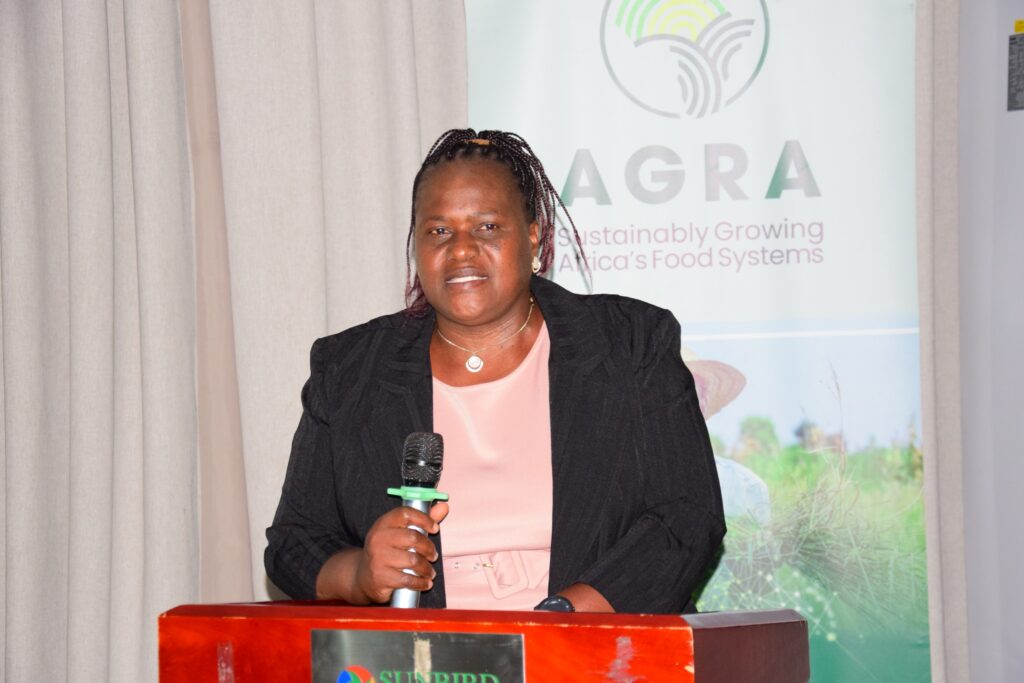
She said the Ministry is complementing the RE-GAIN programme with a nationwide food loss awareness campaign, launched in May 2024, to educate farmers on improved storage, drying, and processing techniques.
Malawi’s RE-GAIN initiative is part of a broader $105 million continental programme targeting seven African countries. The multi-country approach aims to enhance climate resilience and reduce food loss at scale—both critical goals as African agriculture faces mounting threats from extreme weather and global market disruptions.
While hopes are high, stakeholders agree the success of the project will depend on sustained commitment, local ownership, and transparent coordination among partners.
As Chomanika put it, “We cannot afford to waste what little we produce. Every kilogram saved is a step toward food sovereignty and climate resilience.”


